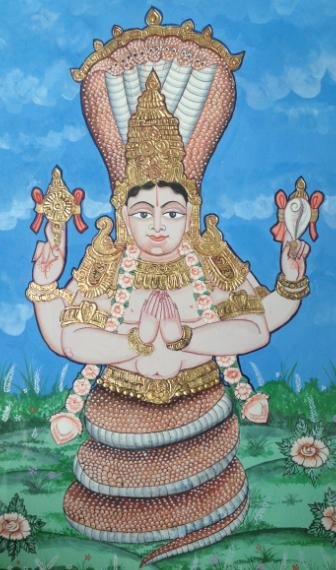September Dispatch: “Thus the Seer abides in its own true nature.” (or, the usefulness of dualism and Anna on the beach.)
Greetings, Galaxy Friends. I’m sitting on the shores of Lake Superior, Minnie Mouse towel draped over my legs, watching tiny little ripples of waves roll in. I’m trying to see how many days I can go without taking a formal “shower.”
I know that sounds gross, but I’ve been in and out of my sauna trying out new Finnish sauna “recipes” like a birch leaf shampoo and a coffee grounds scrub, and then I get to jump in the enormous, beautiful, refreshing, and not-even-that-cold Lake Superior. So I feel like I’m still staying pretty clean and my family says I still smell okay. But what’s great is they have to love me even if I don’t smell okay.
As I’m sitting here, I’m profoundly feeling the wibbly-wobbliness of time, and how you can experience the passage of time at various points as intensely, uncontrollably quick, and unendingly slow. Sitting on the beach is one of those places where I invariably tap into the feeling of what I call ecstatic time passage - where I can sit, and feel like my senses are more finely attuned to the details, and time passes slowly, in a good way. The best way. The wind is blowing, the water and leaves in the trees are rippling, I’ve got a good playlist on, I might be sipping a beverage (right now, I’m just eating some really good grapes), and I’m not attached to what Deborah Landau calls the “rectangle of light,” aka my cell phone. I’m attached, or at least just grateful to be immersed in what is happening around me, right now.
But speaking of Deborah Landau, here’s the portion of a poem that phrase comes from (it’s called “Ecstasies”):
“Are we done with life? I am still so into it.
I like to drink and read and use my mouth
our bodies constellating in the smothering heat
as the trucks slam by, the song of a siren
has a sort of infinity in it, so too the poof
of dove on the sill, dropcloth of sheets, a drench,
the coming dusk, drizzle of sky
its fading and spanning–
days become decades and then–
(We belong to a generation of hideous inattention
Clutching our rectangles of light like–
Who am I talking to?)
And I guess that push and pull between being a part of the world and being disconnected from the world is at the heart of our theme this month - The Yoga Sutras. Okay, but aren’t the Yoga Sutras just little aphorism sound-bite type wisdom nuggets, Anna? Yes; yes they are. But they are also firmly in the camp of the dualists, where there is this supposed divide between what we experience as a body on Earth, and as a spirit beyond Earth. And sometimes, the message of the Yoga Sutras (and other yogic philosophical texts) is that we have to find ways to quiet down our minds, eschew the experience of being a human being on planet Earth, and find ways to escape, or liberate ourselves to the realm where our neverending essences can just essence the fuck out for all eternity.
Which, in moments like this on this beach, I do not vibe with. Sorry, Patanjali.
Even so, I love the ritual of returning to the study of the Yoga Sutras every September, in a sort of back-to-school nod. In fact, we have two training programs starting this September (which still have a few spots, if you’re called to learn with us), and in both the 200- and 300-hour tracks, we’ll be studying the Yoga Sutras. And all your Galaxy teachers will be bringing some sutra wisdom nuggets into our regularly scheduled classes this month, too. And I can still learn and share about the dualist perspective and appreciate what it has to say, even if it doesn’t always resonate. That’s called cognitive dissonance, and I think it’s a really worthwhile practice for all of us to sit in a bit of an unresolved space, or to grapple with ideas that don’t always align with what we feel to be true.
So, dualism. In the Yoga Sutras, we’re divided into Purusha (the never-ending essence of us), and Prakriti (the mutable earthly incarnation of our selves). Sometimes in the sutras these two aspects are talked about as the Seer and the Seen. In one explanation, our ability to perceive ourselves is likened to looking at our reflection in a rippled pool of water - perceivable, but error prone and unclear. And I suppose that, at times, I understand the feeling - disembodied, unsure, distracted (perhaps by a little rectangle of light, incessantly clutched and pored over), disconnected, and most importantly… attached to a picture, outcome, relationship or vision that I may desperately want, but that just isn’t real, lasting, and true.
But, contrary to much of dualism, I find that moments that I experience those feelings of disembodied disconnection are moments when I’m almost actively trying to escape from my experience in my physical body, in the physical place I happen to be. Or if I’m expecting someone I’m in relationship with to behave how I want them to, rather than how they want or need to.
So the moments when the Seer and the Seen really get each other, for me, are the moments when I resist the urge to escape and commit to being right here, right now, for as long as the moment demands. Which is actually very similar to Sutra 1.3: “Thus the Seer abides in its own true nature.”
Kind of like what I’m doing right now, eating these grapes, sitting on this beach, listening to this playlist, writing these words. And I think about people on vacation, families on vacation, my family on vacation, and the desperate pull of summer to do things that, in my most-hated phrase of all time, will “make memories.” Which so often means forcing people to go places, forcing people to enjoy, adhere to a time schedule, follow an itinerary, and document it with pictures. And so often, at least with my family, the more time I spend planning, the less joyful those memories are. So when I’m up here, I try to just let my family be and do exactly what they want to do - sometimes, it’s playing video games or watching TV. And sometimes, it’s a glorious day where my daughter swims out to that conglomerate rock island off our beach six times, and the last time, we swim together as a family, to sit on it and watch the sun go down, and I think, “I’ve been waiting years for days like this with these people.” And then I just allow myself to be, to notice, to feel, to not rush a single moment of it.
Because these small moments that we might wait a whole calendar year, or longer, for, this is real life, and you can’t plan for it, or itinerary it. It happens when you’re fully present and living life. And life: I’m not done with it. As Deborah Landau says, I’m still so into it.
xo,
Anna
What I’m Reading…
I had the immense pleasure of finishing three books during my week of vacation in the UP! And now I’m starting in on this book: Grey Matters: A Biography of Brain Surgery. I got the basic idea for this blog about Purusha and Prakriti when I listened to an interview with this book’s author, Theodore H. Schwartz on Fresh Air. Schwartz says that everything we are as human beings is in our brain - he doesn’t weigh in on dualism, but based on how he describes the millions of lighting-quick processes that occur in our brains, I would guess he comes down firmly on the side of non-dualism. He says that he doesn’t believe in the concept of a mind, separate from our brains, which is doubly fascinating, because his father, who ended up passing away after a stroke and severe brain damage, was a Freudian analyst. I’m really enjoying learning about the history of brain surgery, paired with Schwartz’s own journey as a surgeon. If you read it, or have an opinion on whether there’s a separation between body and mind, or body and spirit, of course, I want to know about it! Email me!




